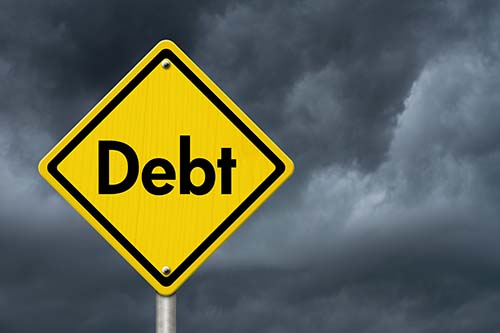Three Proven Ways You Boost Your Credit to Get a Mortgage Approved
 Credit problems are unfortunately common, and they can make it difficult for you to obtain a mortgage. Even if you are able to obtain a mortgage with your credit issues, the rate may be rather high in comparison to what you may qualify for if you obtain a mortgage without fixing your credit problems. While some issues may take a while to fix, you may be able to see a decent increase in your credit rating when you follow a few easy steps.
Credit problems are unfortunately common, and they can make it difficult for you to obtain a mortgage. Even if you are able to obtain a mortgage with your credit issues, the rate may be rather high in comparison to what you may qualify for if you obtain a mortgage without fixing your credit problems. While some issues may take a while to fix, you may be able to see a decent increase in your credit rating when you follow a few easy steps.
Pay Off Outstanding Derogatory Credit Items
When you review a copy of your credit report, you may notice that some items have an outstanding balance due. If the account is in good standing, the outstanding balance is not a primary issue unless you have an excessive amount of debt. If the account is not in good standing, such as if you have a series of late payments or a collection account being reported on the credit report, you can see a boost in your credit rating when you pay off these debts.
Settle Judgments
Legal matters can also be reported on your credit report, and they may be settled or still outstanding. An example of this would be if an electrician serviced your home, and you did not pay the bill. The electrician could file a lien against you. A settled judgment may still be a ding on your credit rating, but it is far better than having an unsettled judgment. If you notice that you have a judgment reported on your credit report, you may consider taking the necessary steps to settle it and get back in good standing.
Pay Off Small Balances
If you can afford to do so, it can improve your credit rating to pay off small balances. A portion of your credit rating will be determined by the number of open accounts and the number of accounts with balances that you have. By focusing on the small balances, you can often see a quick improvement in your credit score. There may also be a benefit to closing these accounts after they have been paid off.
Before you apply for a mortgage, it is wise to request a copy of your credit report. You want to remove any items that you find on the report that do not belong to you. For those derogatory items that are yours, you can follow these steps to help improve your credit rating with fast results.

 We all want to sell our homes at above asking price, but what is it that makes a seller succeed at this? Here’s our expert advice on how you can sell your home above the asking price.
We all want to sell our homes at above asking price, but what is it that makes a seller succeed at this? Here’s our expert advice on how you can sell your home above the asking price. There was a time when it was possible to acquire a mortgage shortly after filing for Chapter 7 bankruptcy, but with the shifts in the financial sector, the timeline on such a mortgage approval has changed in recent years. If you’re currently undergoing a Chapter 7 bankruptcy and are wondering how this will impact home ownership, here are the basics on this type of bankruptcy and what it may mean for you.
There was a time when it was possible to acquire a mortgage shortly after filing for Chapter 7 bankruptcy, but with the shifts in the financial sector, the timeline on such a mortgage approval has changed in recent years. If you’re currently undergoing a Chapter 7 bankruptcy and are wondering how this will impact home ownership, here are the basics on this type of bankruptcy and what it may mean for you.